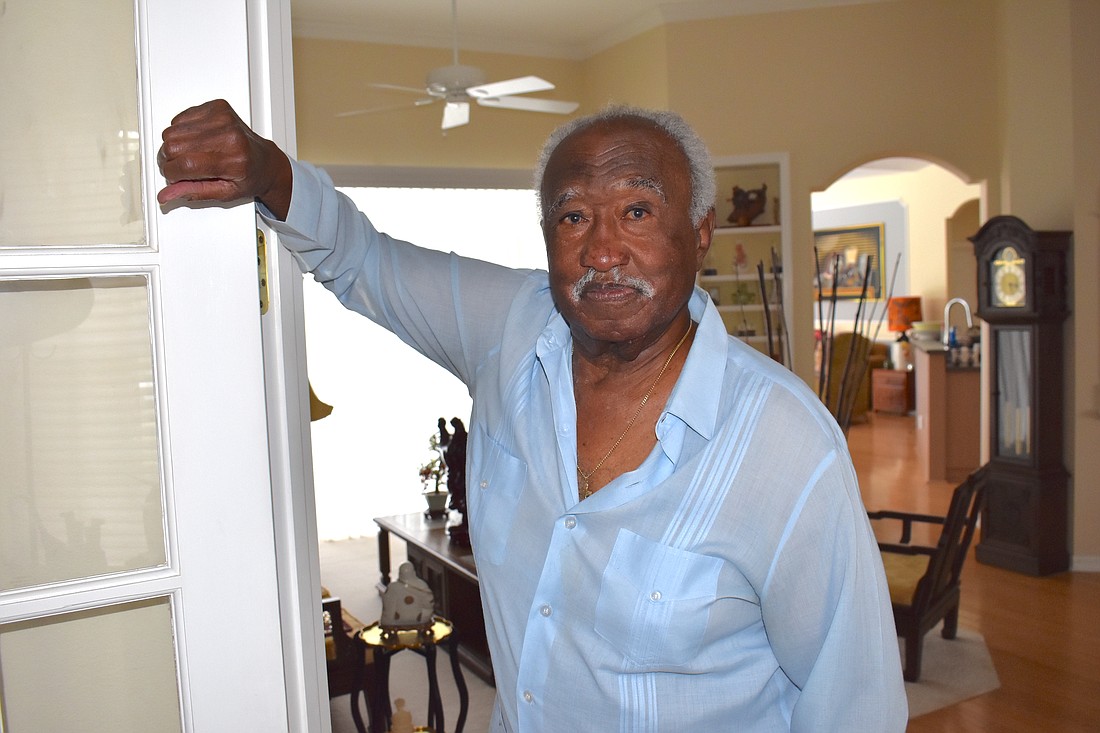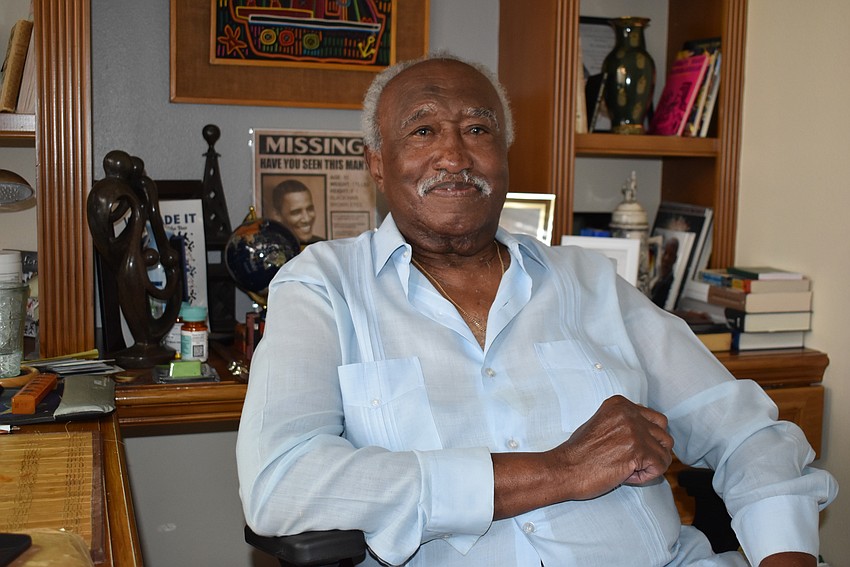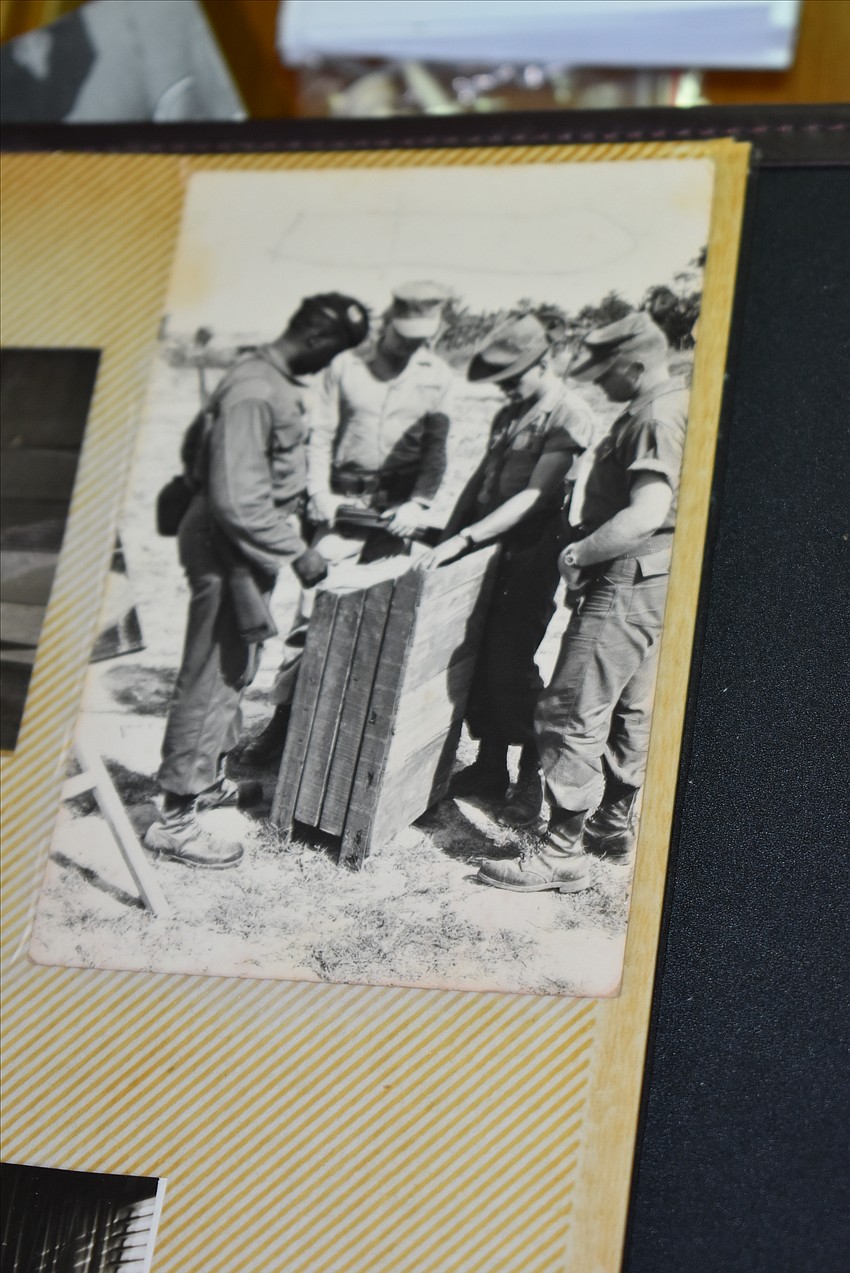- December 23, 2024
-
-
Loading

Loading

Perhaps the Tribute to Heroes Parade serves its most valuable purpose by allowing our nation's military veterans and first responders to tell their stories.
The annual parade marches along Lakewood Main Street in Lakewood Ranch on May 28, and again those important stories will flow to those who never have experienced putting their life on the line for the citizens, or for those too young to know anything about it.
As an example, consider River Club's Herman Bell, a 90-year-old retired Army colonel.
Bell is a 22-year Army Special Forces veteran who served on two missions to Vietnam, the first in 1961 when the American public was unfamiliar with the fact the military had a presence there.
His duty was to lead a small team of American soldiers in training South Vietnamese forces.
He was lucky to survive.
Or perhaps he was blessed.
On a training mission, Bell was walking between two South Vietnamese soldiers when they were caught in an ambush.
The soldier directly in front of him was killed instantly with the first shot fired. Bell reacted, falling to the ground, which he had been trained to do in such a situation. The soldier behind him didn't fall to the ground, and was shot in the chest. He later died.
Bell, who received ROTC training at Florida A&M University before entering officer training in the Army in 1958 as a 21-year-old, credits that training for saving his life.
He also credits divine intervention.
"I grew up in Miami and I had everyone in the Bethel Church praying for me," he said.
Throughout his military service, "I never got a scratch."

He saw other American soldiers wounded but never saw a fellow American soldier killed, he said.
Bell was almost a casualty long before he ever was shipped overseas.
Wanting to be a pilot, he attended flight school at Fort Rucker, Alabama. Fort Rucker, named for a confederate soldier, eventually was renamed Fort Novosel.
He was taught to fly a L-19A Bird Dog observation aircraft. On his first try at landing the aircraft, a crosswind hit the plane and flipped it, basically destroying it.
After a physical, Bell was put into another plane, and once again told to land it.
Again, a crosswind hit the plane, and this time the two wheels broke off their struts upon landing.

"They decided it was uneconomical for me to continue," he said with a broad smile. "They found I had a depth perception problem."
Instead, he joined Army Special Forces and learned to jump out of airplanes.
"I loved it," he said. "It was the thrill of jumping out and looking at your surroundings, looking at the terrain. You could feel the wind blowing against your face."
Fortunately, he said he never had to parachute over Vietnam.
That was close to being a reality on his second tour when he was in a helicopter that came under fire over the village of Bien Hoa.
Bell was talking to the two pilots when he bent toward them to hear what they were saying. A bullet penetrated the helicopter and struck where his head would have been.
He said he continued to concentrate on the work in front of them.
How did he control his fear?
"You have to," he said. "You are in charge and you can't say, 'Let me out of his helicopter so I can be back in the bunker.' The thing that happens, because of the amount of training you have received, is that it puts you in a position to go do your job and survive."
That can be difficult in a firefight.
"It can be so loud, you can barely hear," he said. "You have to be able to inflate your voice when you are giving commands. You have to practice shouting. You can smell something burning and you can see the smoke that the heat has created, heat you feel from the bullets being fired. You can see the tracers."
One of the things Bell had to do was learn a different language.
"You have to know what they are saying," he said of the South Vietnamese troops. "You need to know whether they are saying to shoot back, or to run."
After retiring from the military, Bell worked in the insurance industry. He moved to River Club with his wife Geneth in 1999. He said moving to the Lakewood Ranch area was the best decision they ever made.